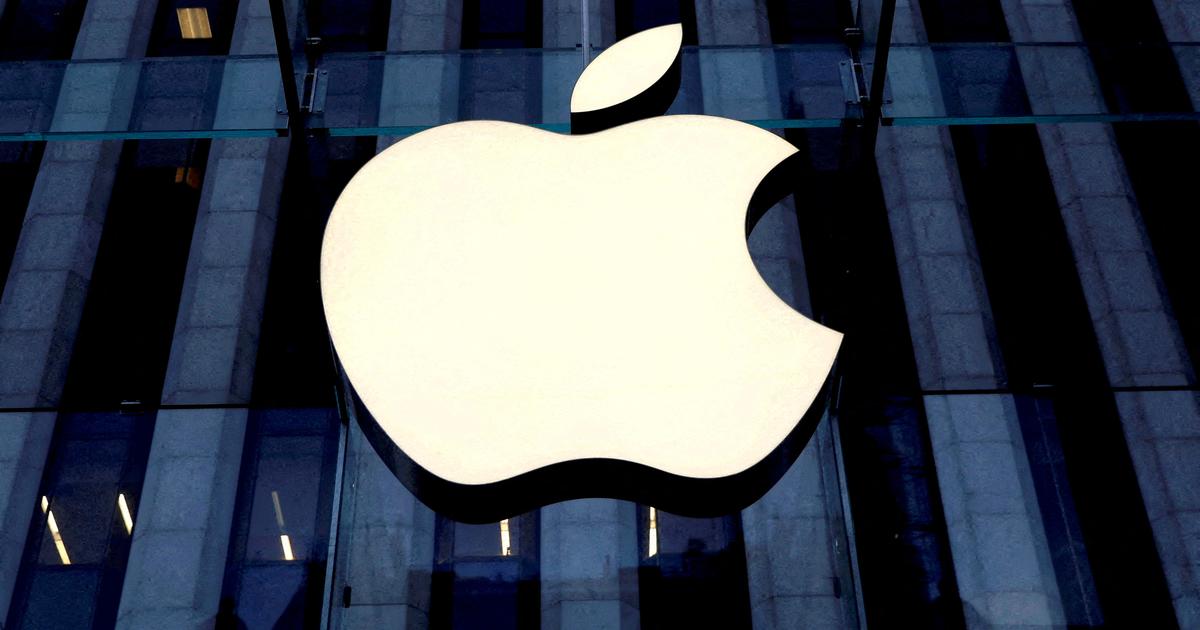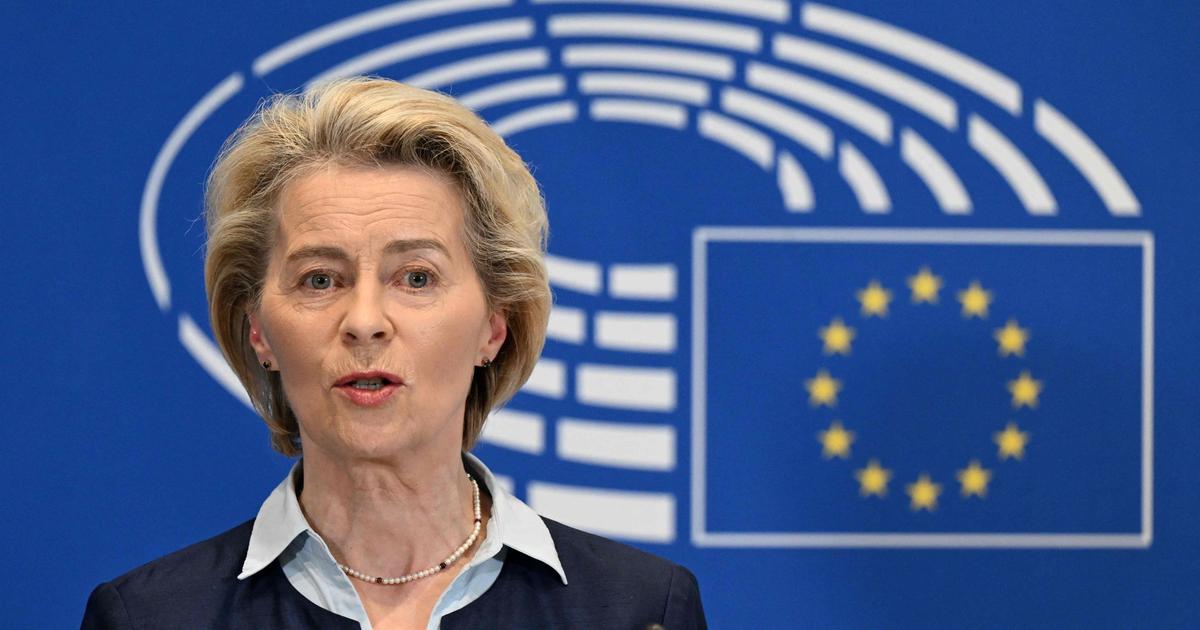Traveling this Sunday to the site of the German subcontractor CordenPharma located in Chenôve, near Dijon, the former Minister of the Economy and Finance of Jacques Chirac, today at the head of a Vaccines task force in Brussels , estimates that the 53 European production sites, including those located in France, will be able to ensure collective immunity to 450 million inhabitants of the European Union from mid-July.
Europe, and with it France, has been severely criticized for the slowness of their vaccination policy.
Does this seem justified to you?
THIERRY BRETON.
These criticisms, I hear them.
But what is correct is that if we had received the 100% AstraZeneca vaccine that was contractually intended for us, the European Union would today be at the same level as Great Britain in terms of vaccination.
I therefore affirm it, the air hole that we recorded comes solely from the delivery faults of AstraZeneca.
In the first quarter, this laboratory only delivered a quarter of the orders to us, when the British received all of them, even though our contract had been signed before them, in August 2020. So we are looking at all this. , including from a legal point of view.
And in the meantime, a strict export control system has been put in place.
And France is about to switch to a massive production of vaccines.
CordenPharma, in Chenôve, near Dijon, has already been involved for several months in the manufacture of messenger RNA vaccines, in particular for Moderna, by supplying nanolipids, one of the essential components of this technology.
Delpharm starts bottling, also for Pfizer, in Saint-Rémy-sur-Avre in the Eure, this Wednesday.
And Recipharm for Moderna in Monts, in Indre-et-Loire, before the end of the month.
Not to mention Janssen at the Sanofi site in Marcy-l'Etoile, near Lyon, in September.
It is a real rise in power.
But isn't innovation, in particular, lagging behind?
On the contrary.
Europe is the continent which today has the most vaccines approved by health authorities.
This is what provides it with a large portfolio, Pfizer, AstraZeneca, Janssen, Curevac, and perhaps by the end of the year Sanofi.
All these vaccines were developed by European laboratories, financed by European funds, including the University of Oxford for AstraZeneca, until December 31st.
And this before, for some, to rely on industrialists, especially American, like Pfizer, to be produced on a very large scale.
But was it reasonable, given the health situation, to authorize exports outside the European Union?
Two-thirds of the vaccines that were injected in Britain, or 20 million doses out of a total of 30 million, came from the EU.
For the second dose, they will be completely dependent on us.
Ditto in Israel, where 100% of the vaccines injected again came from our factories.
To do the opposite would have been a serious mistake.
The fight against the pandemic requires a global approach.
Look, the variants developed in countries where the measurements were insufficient.
Great Britain in the first place, which with 135,000 deaths has paid the heaviest price in Europe.
But also Brazil and South Africa.
Providing other countries with the means to fight the virus also means protecting us.
Collective immunity in Europe or the United States, or 70% of the population over 18 vaccinated, is 800 million inhabitants, on a planet which has 8 billion.
We will therefore have to continue to have an open policy, which takes care of its neighbors, reserving 60% of our production for Member States, and 40% for export.
This is unlike the other major vaccine-producing continent, the United States, which has so far kept 100% of its production for itself.
Newsletter It pays me
The newsletter that improves your purchasing power
Subscribe to the newsletterAll newsletters
Will we be able to achieve this collective immunity this summer as announced?
Between the moment when we launch the manufacture of a vaccine in a bioreactor and the moment when it will be extracted from its vial, it takes between 70 and 90 days, so about three months.
This means that the vaccines that will be delivered in the second quarter are almost already in the pipeline.
We now have real visibility of what is happening, from manufacturing to storage, including bottling or testing.
14 million doses were delivered to the EU in January, 28 million in February and 60 million in March.
For the next quarter, we go to 100 million in April, May and June.
Then 120 million in the summer and we will reach a cruising speed of 200 million from September.
That is more than 800 million doses over the whole of the second half of the year.
Collective immunity can be achieved for all inhabitants of the European Union in mid-July.
What allows this rise in power?
Until then it took two years to transform a production line from one vaccine to another.
There, we do it in five or six months, as on the Sanofi site in Marcy-l'Etoile, which will participate in the production of the Janssen from September.
We have set up a structure that resembles a war economy, with a task force within my office that works 24 hours a day, visits all the sites, is in permanent contact with all the laboratories, etc.
Building up an entire continent in industrial capacity so quickly, with such complex and sophisticated processes, unprecedented partnerships between companies usually in competition, and by prioritizing the general interest over any other interest, is unheard of in the contemporary history.
Another example, we gathered for two days on March 29 and 30, more than 300 companies.
90 cooperation contracts have already been created.
In fact, today we produce identical volumes in the United States.
The two continents have each delivered 180 million doses since the start of the crisis.
But by the end of the year, we will become the world's leading vaccine-producing continent, with a rate that could reach 3 billion doses per year, against 2 billion for the United States.
Are you not worried about production problems, such as those encountered by AstraZeneca, in particular on its Belgian and Dutch sites?
To avoid any new problem of this type, my team will now be in charge of checking upstream, before signing any contract negotiated by the Directorate-General for Health, that all the commitments made by the laboratories are tenable with regard to their capacities. industrial.
And this is only possible today thanks to all the work of inventorying European industrial capacities in the vaccine, carried out in recent months.
Competition will be fierce between the different laboratories.
Are shortages of active ingredients possible?
There is always a risk.
That is why we are also following this issue with the greatest attention.
All the more so with the 53 factories which will soon be operating at full capacity.
A vaccine is made up of more than 400 components.
Part of our team follows the process in real time, like a control tower, checks everything that is happening in the value chain and makes sure there are no bottlenecks.
In Europe and abroad, because we are obviously not completely independent in terms of products.
No country or continent is in these areas.














